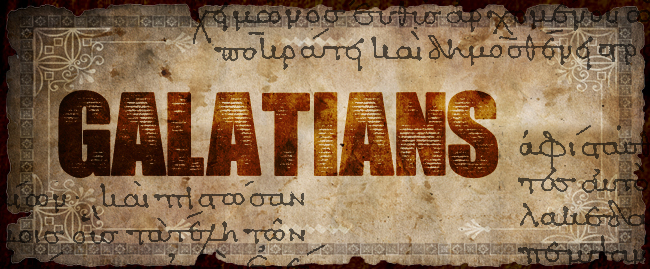I am excited about our study of Galatians this summer. This is our sixth summer of reading through Paul’s letters and we will have made it through all of them save for the Pastorals (1,2 Timothy and Titus). Everyone is invited to join us and all you need to bring with you is a bible (and we have plenty to share if you need one). We’ll begin our discussion this week with an overview of the letter and then begin reading through Chapter 1.
The two major issues in this letter, which Paul will stress from the beginning, are his “apostleship” and his “Gospel”. At the time of this letter, both of these concepts were well-rooted in the Roman imperialist cult. The Greek word “Gospel” or “euangelion” means “good news” or “good announcement” and was used in various contexts in the ancient world. By the time of Jesus, “the Gospel” had come to mean the good news that Caesar Augustus (62BC – 14AD) had finally brought peace to the Empire after a century of disorder. The most famous pronouncement of this imperial gospel is the Priene Calendar Inscription which proclaims Augustus as the Bringer of Peace, Saviour, and Son of God, and sets the calendar to begin on his birthday.
Any “gospel” had to be proclaimed by an apostle. The word “apostle” simply means an agent commissioned by a principal to communicate on behalf of the principal, such as a messenger or envoy. To be an apostle of Augustus meant that Augustus (or someone he had commissioned) had commissioned the speaker. In order for a gospel to be valid, the speaker had to be appropriately commissioned. Paul’s very use of these terms gives us an understanding of Paul’s understanding of who Jesus is.
In the churches of Galatia, Paul’s opponents attacked Paul’s authority as an apostle. Paul was not an original apostle that had been commissioned by the earthly Jesus (Matt 28:19) nor had Paul been commissioned by any such apostle. Because Paul was not an appropriately commissioned apostle, his opponents argued that Paul’s message was invalid.
In his greeting, Paul provides the basis of his apostleship and the gospel that he teaches. The remainder of his letter works out the meaning and implication of this apostleship and gospel. In Galatians 1:1, Paul sets forth the basis of his apostolic commissioning and his authority to speak on behalf of Jesus. Paul does not ground his authority in a commissioning from any original apostle (unlike his opponents who received a commissioning from James (Gal. 2:12)), rather Paul states that he was commissioned by Jesus directly. The first part of the letter explores this issue.
Paul’s “gospel” is set forth in Galatians 1:4: “The Lord Jesus Christ gave himself for our sins to deliver us from the present evil age according to the will of God the Father.” From this statement comes the remainder of Paul’s letter, including his teaching of justification by faith. We will try to unpack Paul’s gospel statement tonight. One of the important aspects of Paul’s Gospel introduction we will look at is that Jesus is a deliverer, which harkens back to the Exodus. It is Paul’s opponents who wish to undo this deliverance and take the congregations back into Egypt (i.e. under the law).
Dinner is at 6. The menu is barbecue chicken. Discussion about 6:45. Please bring a friend or a neighbor. Hope to see you here.
At midday, I saw on the way a light from heaven, brighter than the sun, shining around me. . . . And the Lord said, “I am Jesus whom you are persecuting. But rise and stand upon your feet; for I have appeared to you for this purpose, to appoint you to serve and bear witness to the things in which you have seen me and to those in which I will appear to you, delivering you from the people and from the Gentiles – to whom I send you to open their eyes, that they may turn from darkness to light and from the power of Satan to God, that they may receive forgiveness of sins and a place among those who are sanctified by faith in me.”
Acts 26:13, 15b-18.

